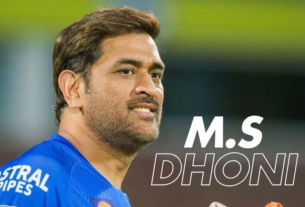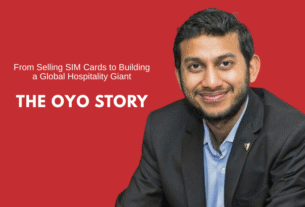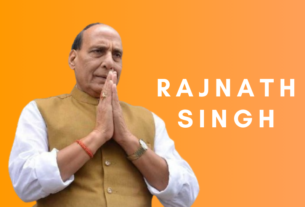When we talk about modern Indian politics, one name that inevitably resonates across the country is Rahul Gandhi. A man born into one of India’s most powerful political dynasties, Rahul’s journey has been anything but straightforward. Often subjected to intense scrutiny and criticism, he has managed to evolve from a reluctant politician into a tenacious leader. Despite the challenges, Rahul’s transformation reflects resilience, vision, and the ability to rise above trials—qualities that are essential in the realm of Indian politics. Here’s a closer look at Rahul Gandhi’s success story, illustrating his growth and dedication.
Early Life and Influences
Rahul Gandhi was born on June 19, 1970, into the Nehru-Gandhi family, a household that has profoundly shaped Indian politics since independence. His grandmother, Indira Gandhi, and father, Rajiv Gandhi, both served as Prime Ministers of India, leaving an indelible mark on the nation’s history. Although his entry into politics seemed almost predestined, Rahul’s initial years were marked by a reluctance to assume the responsibility thrust upon him.
Growing up in a politically charged environment exposed him to both the privileges and the perils of power. The tragic assassinations of his grandmother in 1984 and his father in 1991 were traumatic experiences that shaped his worldview and instilled in him a deep sense of responsibility. These events also contributed to Rahul’s reserved personality, evident in his early years as he maintained a relatively low profile in public life.
The Reluctant Politician
Rahul Gandhi’s official political journey began in 2004, when he contested and won a seat from Amethi in Uttar Pradesh, a constituency that had long been associated with his family. At the time, he was seen as an inexperienced and somewhat hesitant leader. Many critics questioned his commitment and even his political aptitude. The media was quick to label him as a “reluctant prince,” suggesting that he was more inclined toward an academic life than the harsh, competitive world of Indian politics.
Yet, despite his initial reluctance, Rahul demonstrated an earnest desire to understand the issues plaguing the country. He traveled extensively, meeting farmers, laborers, students, and local leaders across the country. He engaged in grassroots-level interactions to understand the everyday struggles of ordinary Indians, particularly the youth, farmers, and marginalized communities.
Rahul Gandhi and the Revitalization of the Indian National Congress
As a leader within the Indian National Congress (INC), Rahul faced an uphill battle from the outset. The Congress Party, once the dominant force in Indian politics, was gradually losing its influence. Rahul’s first major test as a leader came in 2007 when he took charge of the Congress Youth Wing and the National Students’ Union of India (NSUI). His efforts aimed at revitalizing these organizations through structural changes, infusing them with fresh energy and new faces. Rahul was determined to give youth leaders from diverse backgrounds a chance, encouraging internal democracy and inclusivity.
The results of his efforts were evident in the 2009 General Elections, where the Congress-led United Progressive Alliance (UPA) achieved a significant victory. Rahul was credited with playing a crucial role in securing the support of young voters and enhancing the party’s image among the youth. This was an important milestone in his journey as it demonstrated his potential to impact the political landscape.
Overcoming Challenges and Learning from Defeats
Despite the initial success, Rahul’s journey was punctuated by several challenges. The Congress Party suffered major setbacks in the 2014 General Elections and again in 2019, where it faced resounding defeats to the Bharatiya Janata Party (BJP) led by Narendra Modi. These losses placed Rahul under intense pressure and invited severe criticism, both from within his party and from political opponents. Rahul, who had by then been promoted to Congress Party Vice President and later President, faced relentless attacks for his leadership style, decision-making, and perceived inexperience.
Rather than letting these defeats discourage him, Rahul took the losses as opportunities for growth. He stepped down from the Congress presidency in 2019, demonstrating accountability and taking responsibility for the party’s performance. However, he continued to work tirelessly behind the scenes, standing by the Congress party and its vision for a more inclusive India.
The Making of a Resilient Leader
One of Rahul Gandhi’s key qualities has been his resilience. In a politically polarized environment, Rahul has maintained a principled stance on issues he considers crucial to the country’s future. From addressing farmers’ concerns to advocating for job creation, educational reforms, and social equality, Rahul has consistently emphasized his vision of an India rooted in justice and opportunity for all.
He has also demonstrated an unwavering commitment to secularism and democracy—principles that are central to the Congress Party’s ideology. Rahul’s approach has been one of dialogue, tolerance, and inclusivity, which he believes is the path to achieving long-term stability and prosperity in a diverse country like India.
Embracing Change and Strengthening His Public Persona
In recent years, Rahul Gandhi has significantly enhanced his public engagement and communication strategies. Understanding the importance of connecting with young, tech-savvy voters, he has become active on social media platforms, where he discusses national issues, engages with the public, and holds the government accountable. This digital approach has helped him counter the “reluctant leader” narrative, presenting a more determined and approachable image.
Rahul has also embraced innovative ways to connect with the people. His Bharat Jodo Yatra, a nationwide journey aimed at bridging social, cultural, and political divides, stands as one of his most ambitious and impactful initiatives. By walking alongside people from different parts of India, he has managed to foster a sense of unity, dialogue, and understanding, resonating with people from diverse backgrounds.
The Future of Rahul Gandhi in Indian Politics
Rahul Gandhi’s political journey reflects his growth from a reluctant politician into a resilient leader with a genuine commitment to social justice and national unity. His journey is a testament to the power of perseverance, adaptability, and the importance of embracing failure as a stepping stone to success. Despite the criticisms and setbacks, Rahul’s determination to stay grounded, learn from experiences, and continually work towards the betterment of the country defines his evolving legacy.
Looking ahead, Rahul Gandhi stands as a formidable figure in Indian politics, one who is not defined solely by his family’s legacy but by his individual accomplishments and vision. In a nation with complex social and economic issues, his emphasis on inclusivity, transparency, and integrity offers a hopeful prospect for India’s future. While he still has challenges to overcome, his resilience and dedication have proven that he has the potential to be a transformative leader, one who aspires to bring meaningful change and progress to India.
Rahul Gandhi’s journey highlights the resilience and fortitude needed to survive and thrive in the complex world of Indian politics. With each step forward, he continues to redefine his role, showing that success is not only about winning elections but about staying true to one’s values and commitment to society.





